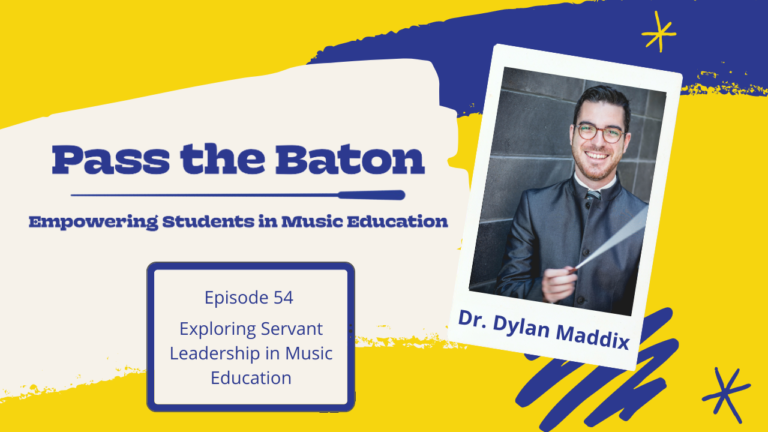In Episode 35, Theresa and Kathryn talked to music educator, Zach Rush. Zach began his teaching career in international schools, teaching music in both Dubai and Pakistan. He returned to the US to get a master’s degree and then began teaching elementary general music in Arlington, Virginia. This school year, he has moved closer to home to teach music in Iowa City. In addition to teaching music, Zach is also interested in research, and how educators can use that to inform their practice.

Teacher Research
When teaching in Arlington, Zach was part of the “Teacher Research Club.” He loves how research not only tells a story, but is also backed up by evidence. Through research, we determine if what we’re doing benefits the students, and if they are learning what we want them to. As a member of the teacher research club, Zach met with a cohort of educators monthly to work on their projects.
Teacher research was a great opportunity for me to find myself as an educator and see if what I was doing really brought about measurable and positive outcomes with my students.
In Zach’s research project, he wanted to focus on how student agency could drive a successful music program and how students who have choice can create and own a product of high quality. He was also looking to connect a third grade Social Studies unit about Civil Rights.
Zach’s Project
For Zach’s research project, he used the book, “Martin’s Big Words” as the foundation to learn about how Dr. Martin Luther King’s words have driven change in our society. Students learned about civil rights music and the impact of lyrics, which eventually led them to compose their own music. Zach shared great information about his project, including:
- How students referenced the responsive classroom character traits, CARES: cooperation, assertion, responsibility, empathy, and self-control to make their compositions meaningful.
- The process students used, by first creating simple melodies, then adding their own lyrics. Zach gave specific requirements, but students had agency over many of the creative decisions.
- How many students got frustrated, since this was the first time they had been given agency. Zach helped them work through that and learn the music room was a safe space to make mistakes.
Zach continues to share how this project helped him answer the questions: do the students understand cultural responsiveness, and do the students understand the musical concepts? Using student work and post-project reflections, Zach could gather data to support his findings. To learn more about Zach’s civil rights project and his process as a teacher researcher, check out the full episode: Empowered Educators Will Empower Their Students.

You can connect with Zach and learn more about his work here:
- Twitter: @MrZsMusicTweets
- LinkedIn: Zachary D Rush
Listen to the full interview on your favorite podcast app or here, on Anchor!
Check out these interviews to learn more about empowering music students with creativity and inquiry:


